“Few would dispute that the philosophical underpinnings of the protectionist paradigm assign an intrinsic value to individual animals, accepting them as fellow sentient beings and strongly opposing the killing of wild animals for any reason. However, this should not be an excuse for avoiding rational and informed debate.”
**WARNING POST CONTAINS GRAPHIC IMAGES**
I knew when I woke up with 3 text messages about a Texas Tech cheerleaders hunting page, today was going to be interesting. Opened Facebook and it wasn’t hard to find what everyone was talking about: there the article is, plastered across every status; some with clear distaste others justifying her actions. I am posting this, not being I want to bash other people’s opinions, but because I think it’s important to make educated and informed opinions.
Would you be surprised to learn that trophy hunting generates gross revenues of at least $201 million per year in sub-Saharan Africa?
When I lived in South Africa I was SHOCKED at how uneducated I had been about the hunting industry and the role it played in conservation. Here I was thinking my opinion was SO accurate and then I got a little taste of the truth. The truth is, almost every veterinary call we went on was to hunting operations, game reserves and breeding facilitates. The people who employed our work are the people my Facebook friends are bashing and calling heartless killers. Surprisingly, they were not that at all. The people we encountered have a passion for wildlife and are the primary stakeholders in the conservation of these species. Think about it….their very livelihood depends on the survival of these species. These animals are their incentive to maintain herd health, prevent disease, treat sickness, educate guests about South African wildlife and conservation, use advanced genetics and reproductive tools for breeding selection among many other things. These game farm operations employee local communities and villages, who are now equal stakeholders in the success of the wildlife industry. We worked for countless clients who are using revenue from hunting in order to increase conservation efforts and even in some cases to increase the security for their rhinos due to the increase in poaching. The sad truth is, if hunting didn’t exist, these species would not exist in the numbers they do now. Hunting has sustained these populations, and created conservation incentive.
So how does hunting work? In most scenarios the government determines the hunting quota for a designated area, then they must reach an agreement with a trophy hunting operation. The trophy hunter agrees to pay a certain amount of money for each animal they shoot during their stay. The trophy operations are responsible for acquiring the required permits for hunting. The hunters are accompanied by a guide who ensures the hunter shoots only the animals agreed upon and no more than the agreed amount or species. The hunting operation records the number and species of animals killed by the hunter and ensures the correct amount is paid. Contrary to popular belief these people aren’t just handed a gun and given free range of the property.
When I was in South Africa I got to go to the carcass of an elephant that had been killed with a legally acquired permit by a hunter from America. I wasn’t sure whether or not I wanted to speak to him, but decided I would because I was curious. I won’t go into the details but I will say I was yet again surprised about how little I knew. He was far more educated, informed and very much concerned with the conservation of wildlife species than a majority of these people bashing hunters on Facebook. He researched his permit and found out about the individual elephant he was hunting, where the money would be going and made sure all the meat was donated to local townships. He made a difference not only in providing money for conservation but also by sustaining local townships with meat and hide, which is far more than I am guessing most of us have contributed financially.
I’m not going to lie to you, standing in front of that elephant carcass was one of the hardest things I have ever done. Talking to the person responsible for that elephants death, even harder: but hearing that from this animals death came the financial means for conserving the rest of the elephants on the reserve and that the meat taken from the elephant was donated to townships made it more bearable. I included this picture not for shock factor, but because I want you to know where my beliefs are grounded. They are grounded staring hunting right in the face knowing it serves a role in conservation. My beliefs come from experience, from talking to hunters, talking to owners of trophy hunting ranches, working with game rangers and wildlife veterinarians.These learning experience are some I will take with me forever, because some of the hardest lessons in life come when we are forced to overcome our emotions and look at the facts. The fact is that the life of this elephant had a price, and from that price came an infinite amount of good. Nobody said the truth was pretty.
Sure you may not agree about the killing of animals for sport, but before you go criticizing the actions of others, ask yourself how much are you doing for conservation? How are you contributing to the survival of these species?
In all honesty, we need to be more focused on finding solutions that will truly conserve the species and eradicate poaching — which is the real issue that needs to be addressed. If a young college student hunting animals legally outrages social media, what would you say to the thousands of rhinos illegally killed or wounded using nothing more than machetes? Some left mortally wounded and ALIVE to later die slowly and painfully of their inflicted wounds. If you want something to be mad about, there you go.
This blog is written mostly from experience, but if you want to read the facts I have included several articles below that I would encourage you to read.
Click to access Economic-and-conservation-significance.pdf
http://www.cbsnews.com/news/can-hunting-endangered-animals-save-the-species/
Click to access Economic-and-conservation-significance.pdf
http://ireport.cnn.com/docs/DOC-1079606
http://showme.co.za/lifestyle/hunting-a-great-debate/
http://newswatch.nationalgeographic.com/2012/11/15/no-more-hunting-of-any-kind-in-botswana/

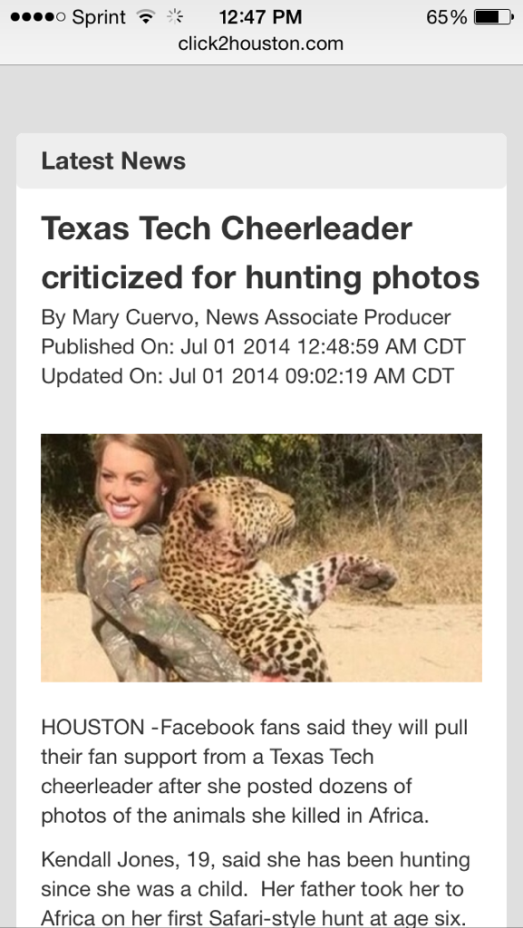
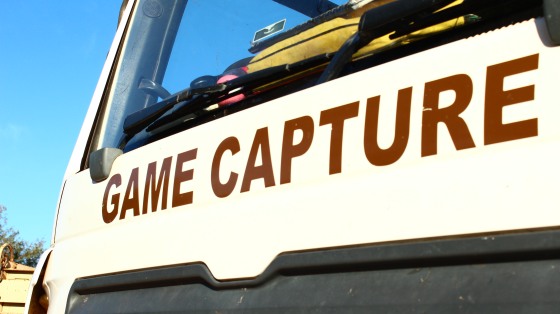
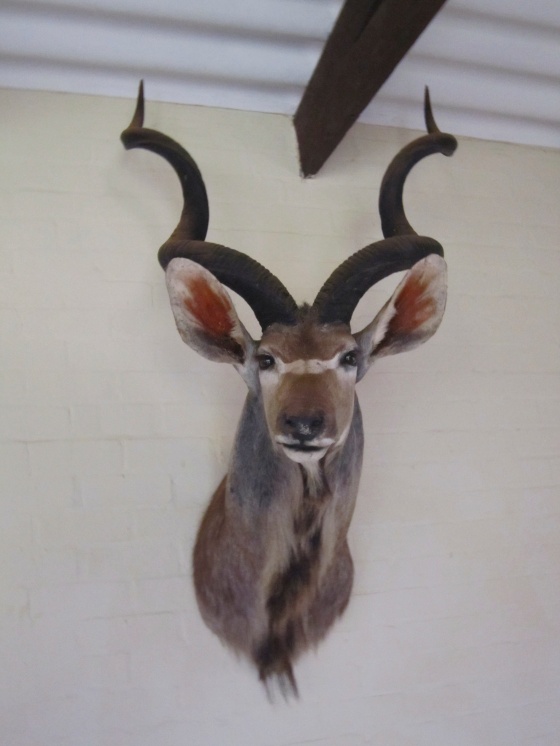
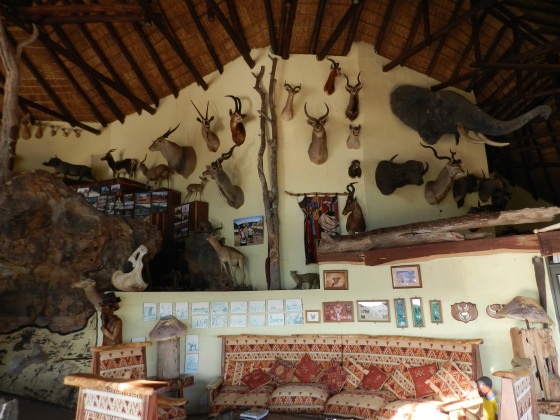
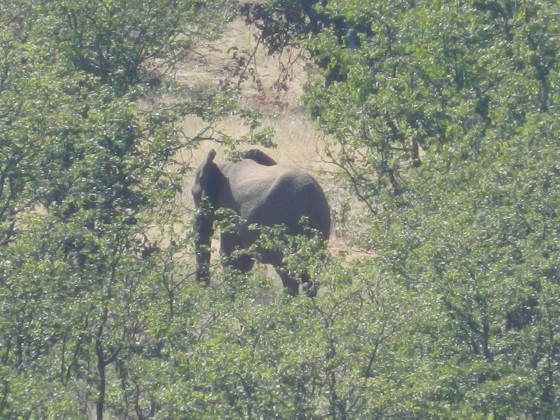
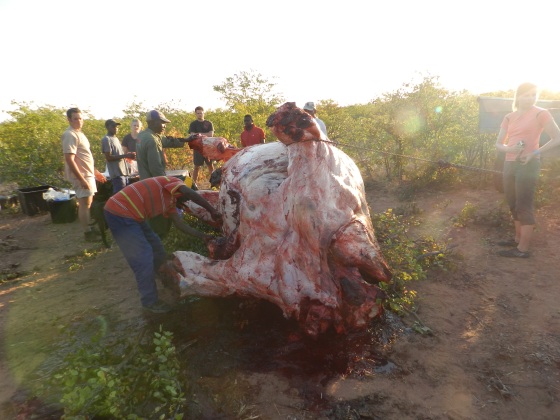
If you running away to Africa for three months results in you being able to impart knowledge like this, I SUPPOSE I can let you go back for three more weeks.
But seriously. First levelheaded discussion of this topic I’ve seen in a long while, not just from the viral attention hunting is getting today.
Bravo ma’am. I’m particularly fond of one of your last points. It’s sad that these legal hunts have gotten so much more publicity in the States than the current war being fought to protect the rhinos.
Glad I discovered that you had a blog. Looks like I have some light reading to catch up on before we start life together.
Great post! I think a lot of people have really poor stereotypes of hunters. I’m glad you took the time to write this and impart some knowledge.
Reblogged this on Shooter Chic and commented:
This is an absolutely wonderful post explaining hunting and its effects on conservation. Well written and a great read!!
Such a good read! I really appreciate your level approach to the topic. It’s easy to jump on the emotional bandwagon with this debate, but so hard to understand what actually happens across the ocean. Also, kudos for the linked articles.
Thanks for sharing this!! I find it disgusting that people will sit behind their computer screens, arguing over so-called “beliefs” of theirs, and pretending to have their own opinions. If a single one of them did ANYTHING to help conserve wildlife, I’d be astonished.
As a M.S. student at A&M and hunter I thought this was very well written. I think your points are exactly the ones that have been missed in this whole thing.
I think hunting elephants should be banned on all African countries.
Michael…you really did miss the whole point of this article didn’t you? Ban as much of hunting as you want, but for the poachers, it doesn’t mean a hill of beans. If you ban the legal hunting of an animal, the illegal hunting of the animals will rise so substantially it could and would decimate the populations far beyond repair. It’s not the legal taking of animals that puts animals on endangered species list, it’s the illegal hunting. Seriously educate yourself before you say something so ignorant that it makes you look like an idiot. As the article says, the legal hunting helps in conservation because it injects the funds that enables the countries to continue to breed these animal populations back to health. What have you contributed? Exactly. This was a great read and glad that it helped change opinions on hunting.
I am not an idiot. Poachers are idiots and immature. I know everything about animals and I am confident enough to know to them.
Kendal Jones is not a poacher…she is a paying, tagged hunter.
If you want game to flourish, give someone a reason to protect it! Hunting provides that reason as well as funding, predetermined tag issuing and statistic gathering on documented game removal is essential to game management, funded by hunting to a major extent
Look at the European brown hare in Britain…was PLENTIFUL before the hunting ban..in England. The hunting community protected the habitats. Altcar Estate hare census prior to the ban had in excess of 300 hare on the estate. After the hunting ban, poachers slipped in and wiped them out. You will not see a hare on the estate today. This is true in many parts of England. To say that game populations decline after any hunting ban is imposed is a truism.
Please realize a large percent of hunters are 3 – 5 generation hunters. We have inherited mounts on the wall, log cabins, guns, are infused with the ‘experience’ since children. It is not about some insatiable need to get out and kill. But anti hunters do not comprehend this. For us it is about having a healthy wildlife population, training good hounds to carefully and correctly work game…and this dates way back to earliest natural living with the environment.
A person in the center of NY can be every bit a countryman as an outfitter in Colorado. Our passion for wildlife should direct us to do what is best for wildlife as a whole. I repeat, where legal hunting occurs, game flourishes.
I’d never said she’s a poacher. I meant other bad guys.
Thanks for sharing your thoughts on this controversial topic! You’re totally right that there are a lot more complexities behind these debates than most of us are aware of.
Yeah, I am damn right.
Thanks Elliot! You’re so right, this issue is far more complex than even I can understand. I can only speak from what I have experienced and hope that people understand that there are several layers to this discussion!